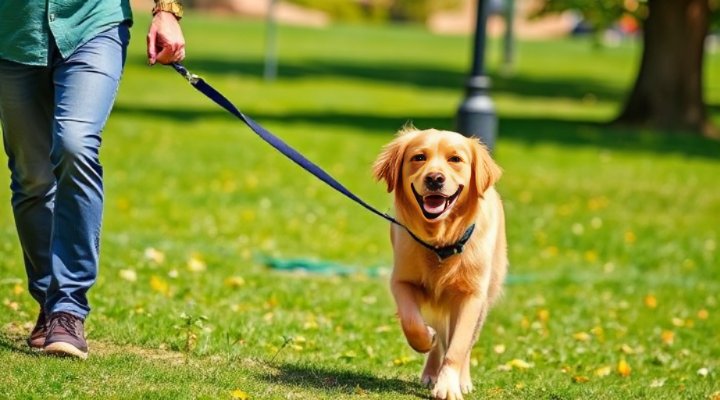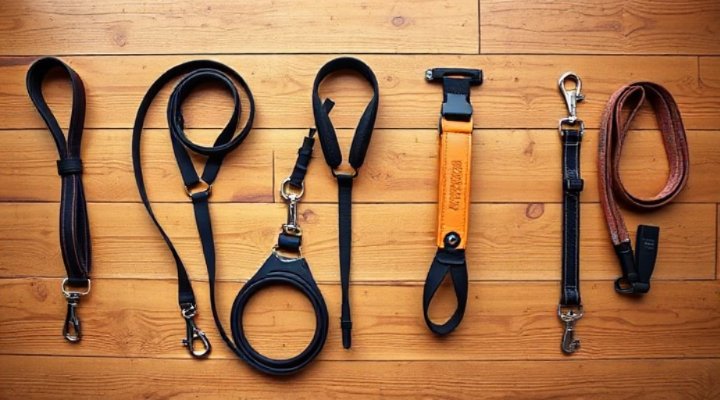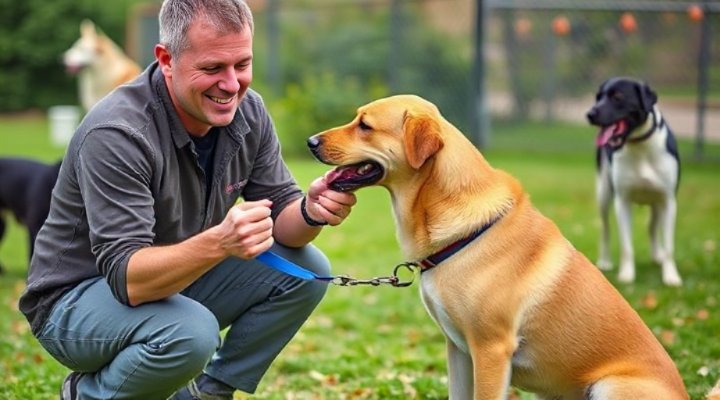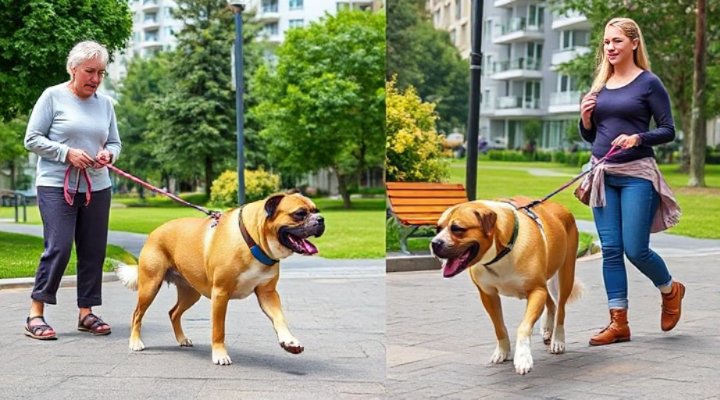Walking your dog should be one of life’s simple pleasures, but for many owners, it’s more like an arm-wrestling match. If you’re struggling with a dog that pulls relentlessly, you’re not alone. The good news? Choosing the best dog leash for pulling can make all the difference between a pleasant stroll and a daily battle of wills.

Why the Right Leash Matters for Pulling Problems
Before we dive into specific products, let’s understand why leash selection is crucial for pullers. A standard leash might work for well-trained dogs, but strong pullers need specialized equipment designed to:
- Distribute pressure more comfortably
- Provide better control without straining your arm
- Encourage proper walking position
- Reduce risk of injury to both dog and owner
According to the American Veterinary Medical Association, proper leash equipment is essential for safe walks and effective training.

Top 5 Leash Options for Pulling Dogs
1. Front-Clip Harness Systems
Our top recommendation for most pullers, front-clip harnesses gently steer your dog sideways when they pull, discouraging the behavior naturally. The Easy Walk Harness is particularly effective for large breeds.
2. Head Halters
Similar to a horse’s halter, these gently guide your dog’s head. While highly effective, they require proper introduction. Check out our walking training guide for tips on acclimating your dog.
3. Martingale Collars
These provide more control than flat collars without choking. Ideal for dogs that slip regular collars, but not for extreme pullers.
4. Hands-Free Bungee Leashes
Great for joggers or hikers, the bungee absorbs shock from sudden pulls. Pair with a good harness for best results.
5. Dual-Clip Training Leashes
These versatile leashes allow multiple attachment points for customized control during training sessions.

Matching Leash Type to Your Dog’s Needs
Not all pullers are created equal. Consider these factors when choosing:
| Dog Type | Recommended Leash | Why It Works |
|---|---|---|
| Strong large breeds | Front-clip harness | Distributes pressure across chest |
| Determined pullers | Head halter | Controls direction gently |
| Small but feisty | Martingale collar | Prevents slipping without choking |
| Active owners | Bungee leash | Absorbs shock during runs |

Training Tips to Enhance Leash Effectiveness
Even the best dog leash for pulling works better with proper training. Try these techniques:
- Stop-and-go: When your dog pulls, stop walking completely.
- Direction changes: Frequently change direction to keep your dog attentive.
- High-value rewards: Treat when your dog walks nicely beside you.
- Consistency: Everyone who walks the dog should use the same methods.
For more training advice, explore our recall training guide which includes loose-leash walking techniques.

Common Leash Mistakes to Avoid
Even with good equipment, these errors can undermine your progress:
- Using retractable leashes with pullers (they encourage pulling)
- Inconsistent rules about pulling
- Choosing style over function
- Not properly fitting the equipment
- Expecting overnight miracles
Remember, as noted by the American Kennel Club, patience and consistency are key when addressing pulling behavior.
Final Thoughts: Enjoy Walks Again
Finding the best dog leash for pulling can transform your walking experience from frustrating to enjoyable. While equipment helps, remember that training and consistency are equally important. Start with one of our recommended options, be patient with the process, and soon you’ll look forward to your daily walks rather than dreading them.
For more helpful resources, check out our articles on managing dog aggression and teaching fun tricks to strengthen your bond with your canine companion.
Related Keywords: no pull dog leash, best leash for large dogs that pull, how to stop dog pulling, walking harness for dogs, training leash for pullers

